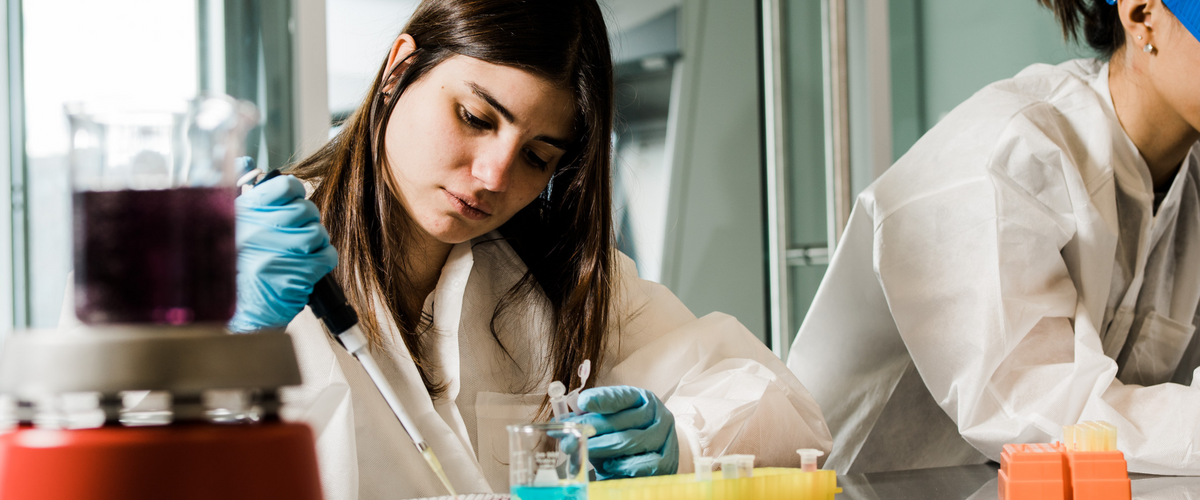Written by Rachel Farrell | Posted May 2025

In 2024, Reena Nuygen (CAS’26) became one of 49 first-gen students at Boston University to receive a summer housing stipend through the Newbury Center Fund. These stipends, generously funded by donors and 1839 Society members, are granted to select first-gen students who have unpaid or low-paying internships or research positions during the summer.
For Nuygen, the housing stipend meant she could accept an unpaid research position at BU’s National Emerging Infectious Disease Laboratories (NEIDL) and continue her research on a deadly virus. Recently, Nuygen sat down to explain the importance of her research and how the Newbury Center Fund has enabled recent developments in her work.
Tell us about the virus you’re researching at NEIDL.
My mentor [PhD student Anna Tseng] and I are studying the Nipah virus. It’s a deadly disease, classified as a global threat, that’s mainly dominant in Malaysia and Bangladesh. Because there are two strains of the Nipah virus, the symptoms present differently in those countries. In Bangladesh, the virus shuts down a person’s lungs, while in Malaysia, it shuts down the brain. We are trying to understand the differences in the two proteins behind these strains so we can figure out why the virus attacks different systems.
You started this work last spring. Why was it important to continue it in the summer?
Because I was working with cells and viruses, the work was very time sensitive. And if I didn’t stay over the summer, the work might get dismissed. That’s what led me to apply for the Newbury Center Fund. I thought if I could pay for housing through the summer, I might be able to keep my position.
Where does the project stand today?
We have made the lentivirus, and now we’re going to infect some lung cells and observe the effects. Studying the host response gives us more insight into the gap between the countries. Right now, because there are no treatments for the Nipah virus, understanding the two critical proteins will help us design antiviral strategies.
What research skills did you gain over the summer?
I learned a lot! I was able to enter a Biosafety Level 2 (BSL-2) lab for the first time, and I learned many of the core techniques that all members of a research lab need to have, such as how to cue PCR, how to stain cells with antibodies, how to run PCR gel electrophoresis, and how to perform western blotting.
Because of this, I have a lot more responsibilities now. My mentor has more confidence in me because I proved I can handle the responsibilities. So, if she has to go to BSL-3 upstairs, she knows I can handle some of the research on my own.
What would have happened if you didn’t receive the summer housing stipend from the Newbury Center?
If I didn’t have the summer funding, I couldn’t have stayed at BU for the summer. And I think the project would have either been put on hold or tossed away, because the cells are very time sensitive and very hard to take care of if you’re not constantly available.
Is there anything you’d like to say to the donors that helped fund your summer stipend?
The summer lab experience was a very big steppingstone for me. To the donors who supported me, I want to say a very, very big thank you. Without the housing stipend, I wouldn’t have been able to continue studying infectious diseases, find my passion, and meet the best community.
Through the lab, I have met so many members of the virology community. I even got to talk to a Nobel Peace Prize winner and met a researcher who grew human lung tissue on the back of a humanized mouse to study SARS-CoV-2. I’ve met a lot of very talented professors who research the coolest things. I’m constantly amazed.
*Editor’s note: Interview has been edited for length and clarity.
